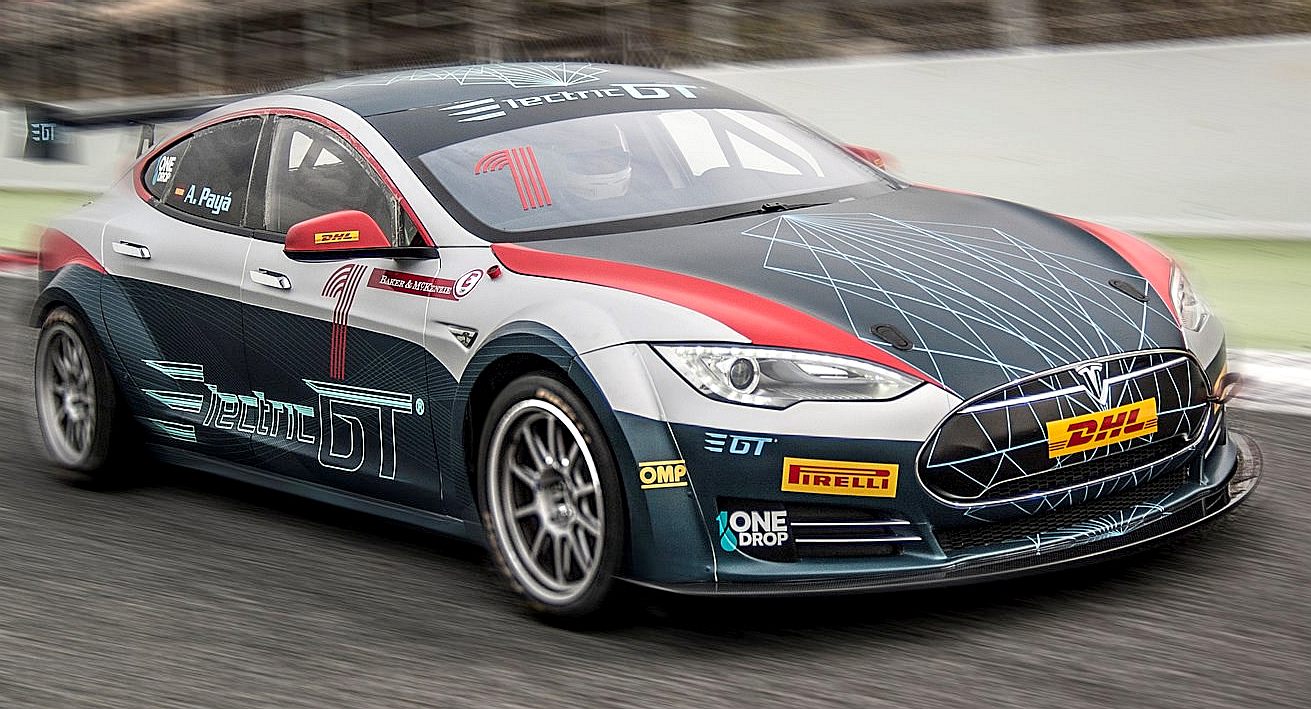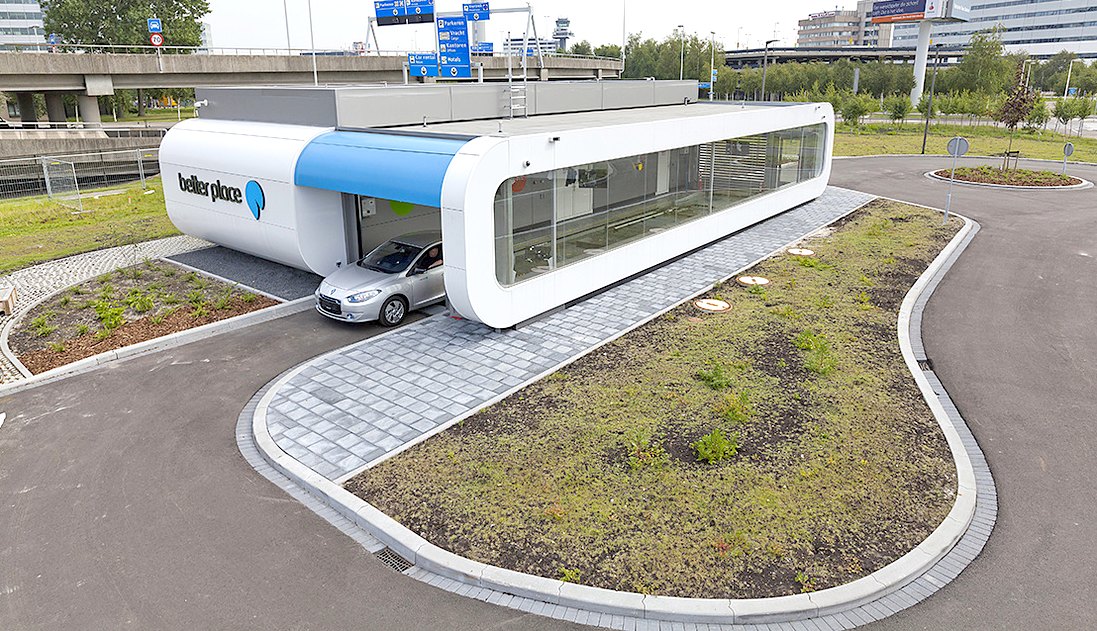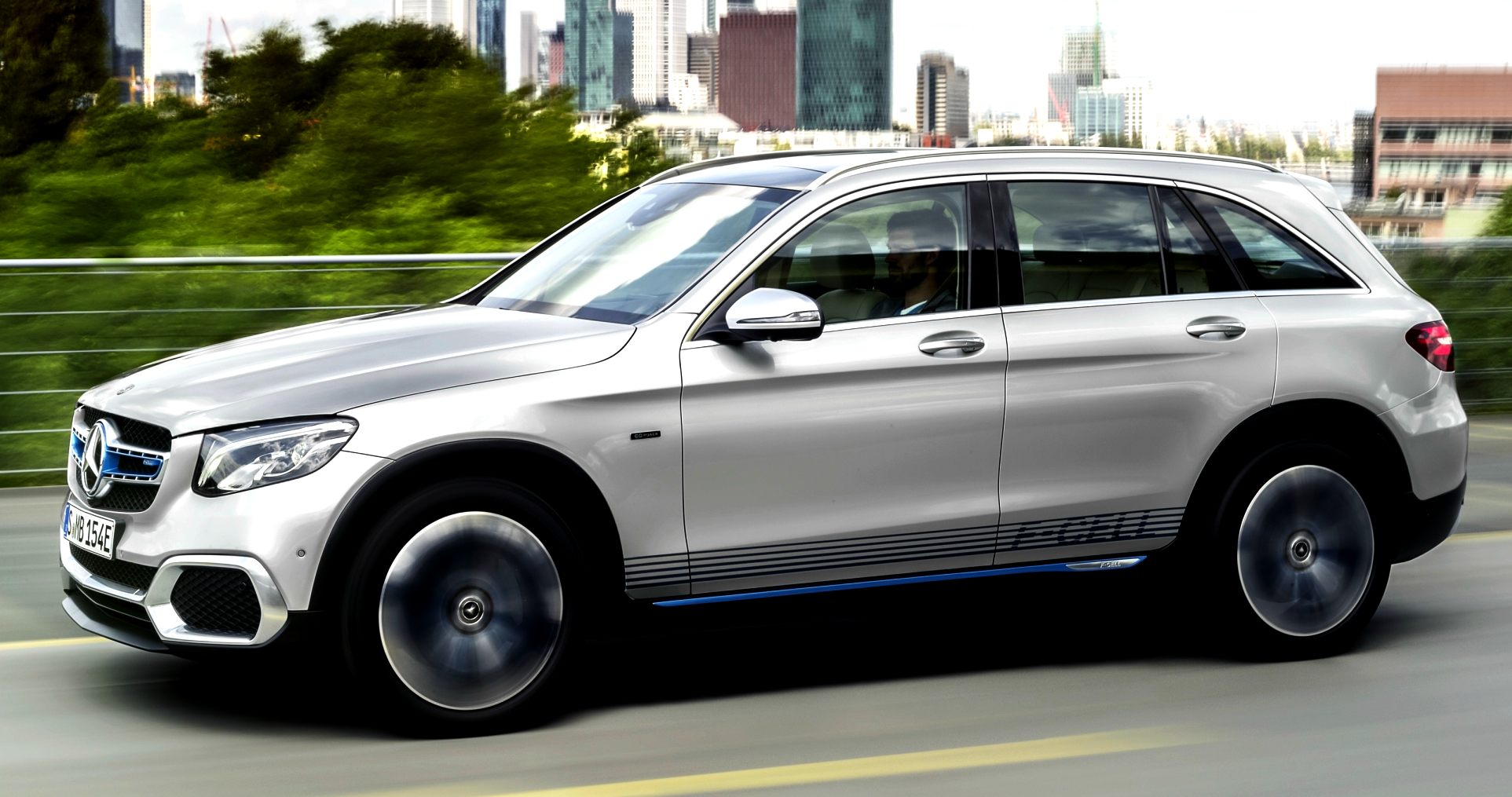|
FCEVs - Vs - BEVs
Please use our A-Z INDEX to navigate this site where page links may lead to other sites.
|
|
|
Lithium battery powered EVs are now a common sight on our roads, such as the Tesla S. But what about when a car breaks down? Roadside recovery will take you to the nearest garage for a conventional BEV, but with the SmartNet™ Universal system, you can have a replacement fitted by the roadside in a couple of minutes and be back on your way.
Hydrogen fuel cells offer a potentially very clean, energy-dense and easy to recharge energy source for electric vehicles and other systems, but are currently complicated, expensive and potentially dangerous to operate because of the high pressures involved. In comparison, Lithium-ion batteries, although less energy-dense and slower to recharge, are as clean, much cheaper, easier and safer to handle.
Without any doubt, hydrogen cannot compete efficiency wise either, in terms of wind/solar (assuming renewable energy as the electrical input) conversion to road miles. Not only that, but as battery recycling improves, rare earth metals might be reclaimed such as to approach the sustainability of fuel cells. Though fuel cells only have a finite life, just the same a batteries. Hence, both need regular servicing, repair and replacement.
Why then is hydrogen being developed with such gusto?
Because it offers such excellent storage capacity, especially for heavy goods vehicles and commercial vans, where batteries cannot compete in terms of Range Anxiety.
Lithium battery packs come in a multitude of shapes and sizes, hindering the mass take up of electric vehicles. Renewable electricity obtained via direct coupling (wind/solar), grid-balancing services such as with the SmartNet™ system, offers a more efficient mobility infrastructure for long term sustainability and the elusive circular economy. The Better Place EV service station above, exchange battery cartridges, but could not cater for hydrogen vehicles or offer load levelling for national grids.
Fuel cells and batteries are similar as they both release stored energy as electricity. But a battery stores energy in its electrode chemistry, while a fuel cell uses an external fuel such as hydrogen allowing it to continue operating as long as fuel is supplied to it - without recharging.
Unlike conventional batteries however, fuel cells do not contain harmful materials, nor do they have moving parts thereby minimizing maintenance requirements - and platinum is recoverable and recyclable virtually 100%.
HYDROGEN BATTERY
The ideal would thus be a 'Hydrogen Battery,' except for the cost of hydrogen at the moment. But this is reducing with more efficient electrolyzers, to the point where hydrogen can compete with diesel.
As of April 2021, no major vehicle OEM has adopted the Universal standard for any of their battery or hydrogen powered vehicles, despite the general duty, hence obligation to cooperate to find solutions. Yet, the adoption of a standard, offers a way to accelerate the transition from carcinogenic petrol and diesel cars, through and including battery electrics, to FCEVs, when a sensible energy infrastructure mix is possible at far lower financial risk.
We imagine that politicians are extremely nervous at the moment, with 2030-35 targets looming large and no transport-energy policies on the table that are capable of living up to their dream of zero emissions mobility.
Fuel cell powered EVs have an even more acute refueling problem than battery electrics, with less than 200 service stations in the entire world at time of writing - and no possibility of refueling at home. Ouch!
Please use our A-Z INDEX to navigate this site
This website is provided on a free basis to promote zero emission transport in Europe and Internationally. Copyright © Climate Change Trust & Universal Smart Batteries 2021. Solar Studios, BN271RF, United Kingdom.
|


